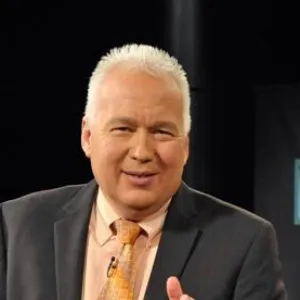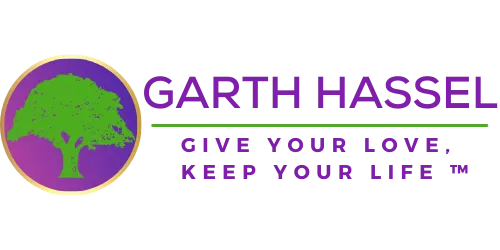
Part 1: Have the will to arrange for a smooth transition when you’re no longer around to answer questions


Part 1: Have the will to arrange for a smooth transition when you’re no longer around to answer questions

Finding the Will
“Hello?”
“I’m Deputy Erickson with the Washington County Sheriff's office. Am I speaking with Samantha Johnson?”
“Yes.”
“Are Carol and Edward Johnson your parents?”
“Yes.”
“I have some bad news.”
One phone call not only broke Samantha’s heart but turned the next 18 months of her life upside down.
After the fog of final arrangements, Samantha faces a home seasoned with three generations of family living, all the memorabilia, and piles of records, most of them useless. But buried somewhere are the most important papers of all.
“They must have had a will. Where would it be? I’m the oldest so I think I’d be their executor but I’m not sure. My brother will help but lives three time zones away. My sister’s nearby but will only be trouble, already is. Where do I begin?”
Ensuring your children or other Loved Ones can readily access your important papers when you die entails a sound process versus one or two conversations. You must overcome aversion to the subject of death, procrastination of anything that is long-term, and the tendency to assume things will be fine. Family dynamics can be sweet, spicy, or dicey.
Begin by establishing which Loved One will have access to what information. Designate your agents for powers of attorney (POA) for finances and for health care. Spouses typically name each other as primary agents, then another Loved One as a contingent agent.
Including your primary and contingent agents in your conversations with your estate planning attorney brings to life the reality of your sunset years. Where POAs expire when you do, one of your agents is probably whom you would designate as executor of your will. So working backward from your death, you can see that the role of your Loved Ones who would need access to your papers after death really begins long before you die.
Your attorney can help you structure access between the right people and the right documents at the right time. As your family dynamics change, you’ll need to update your plan documents and re-visit storage and access.
What if your daughter is your executor but she lives 2000 miles away? Will electronic access be sufficient, or will she need to get her hands on the original notarized version? The same questions apply to POAs for while you live. For example, say you have a stroke and now your agents must manage your finances and consult your healthcare providers on your behalf.
Pre-internet, people typically stored important papers in a safety deposit box at their bank. The internet offers cloud storage and cloud communication, which is a life saver for your daughter living 2000 miles away.
At the same time, the internet has created a false sense of security based on an illusion of all the answers and services you need at your fingertips. This is especially true for services that involve substantial fees, such as working with attorneys.
Of course, keep in mind that the true fee for going on the cheap can be hundreds or thousands of times more expensive!
An example of that is when an adult son downloaded a $25 POA form that his mother signed. When he needed to exercise the POA years later, he discovered the hard way that he had downloaded the wrong type of form. His downloaded “Limited” POA ran out after his state’s statutory limitation of $15,000. This happened after checking his mother into a memory-care facility. Two months later, he’d exhausted the $15,000 limit of his powers for accessing her financial resources. He had to pay an elder law attorney for a crisis effort at guardianship/conservatorship while paying the facility out of his own pocket to keep mom there.
In Part 2, where every convenience creates a vulnerability, we’ll touch on the relevant cyber risks and security basics.
Here's the link for Finding the Will (Part 2)
FINDING THE WILL
“Hello?”
“I’m Deputy Erickson with the Washington County Sheriff's office. Am I speaking with Samantha Johnson?”
“Yes.”
“Are Carol and Edward Johnson your parents?”
“Yes.”
“I have some bad news.”
One phone call not only broke Samantha’s heart but turned the next 18 months of her life upside down.
After the fog of final arrangements, Samantha faces a home seasoned with three generations of family living, all the memorabilia, and piles of records, most of them useless. But buried somewhere are the most important papers of all.
“They must have had a will. Where would it be? I’m the oldest so I think I’d be their executor but I’m not sure. My brother will help but lives three time zones away. My sister’s nearby but will only be trouble, already is. Where do I begin?”
Ensuring your children or other Loved Ones can readily access your important papers when you die entails a sound process versus one or two conversations. You must overcome aversion to the subject of death, procrastination of anything that is long-term, and the tendency to assume things will be fine. Family dynamics can be sweet, spicy, or dicey.
Begin by establishing which Loved One will have access to what information. Designate your agents for powers of attorney (POA) for finances and for health care. Spouses typically name each other as primary agents, then another Loved One as a contingent agent.
Including your primary and contingent agents in your conversations with your estate planning attorney brings to life the reality of your sunset years. Where POAs expire when you do, one of your agents is probably whom you would designate as executor of your will. So working backward from your death, you can see that the role of your Loved Ones who would need access to your papers after death really begins long before you die.
Your attorney can help you structure access between the right people and the right documents at the right time. As your family dynamics change, you’ll need to update your plan documents and re-visit storage and access.
What if your daughter is your executor but she lives 2000 miles away? Will electronic access be sufficient, or will she need to get her hands on the original notarized version? The same questions apply to POAs for while you live. For example, say you have a stroke and now your agents must manage your finances and consult your healthcare providers on your behalf.
Pre-internet, people typically stored important papers in a safety deposit box at their bank. The internet offers cloud storage and cloud communication, which is a life saver for your distant daughter.
At the same time, the internet has created a false sense of security based on an illusion of all the answers and services you need at your fingertips. This is especially true for services that involve substantial fees, such as working with attorneys.
Of course, keep in mind that the true fee for going on the cheap can be hundreds or thousands of times more expensive!
An example of that is when an adult son downloaded a $25 POA form that his mother signed. When he needed to exercise the POA years later, he discovered the hard way that he had downloaded the wrong type of form. His downloaded “Limited” POA ran out after his state’s statutory limitation of $15,000. This happened after checking his mother into a memory-care facility. Two months later, he’d exhausted the $15,000 limit of his powers for accessing her financial resources. He had to pay an elder law attorney for a crisis effort at guardianship/conservatorship while paying the facility out of his own pocket to keep mom there.
In Part 2, where every convenience creates a vulnerability, we’ll touch on the relevant cyber risks and security basics.
FINDING THE WILL (PART 2)
Just for answering, get Free access to Tom Hegna's Retire Happy U

Tom Hegna
Tom Hegna is an economist, author, and host of the PBS special, Don't Worry, Retire Happy, viewed in over 80 million homes across the U.S.
Just for answering, get Free access to Tom Hegna's Retire Happy U

Tom Hegna
Tom Hegna is an economist, author, and host of the PBS special, Don't Worry, Retire Happy, viewed in over 80 million homes across the U.S.




